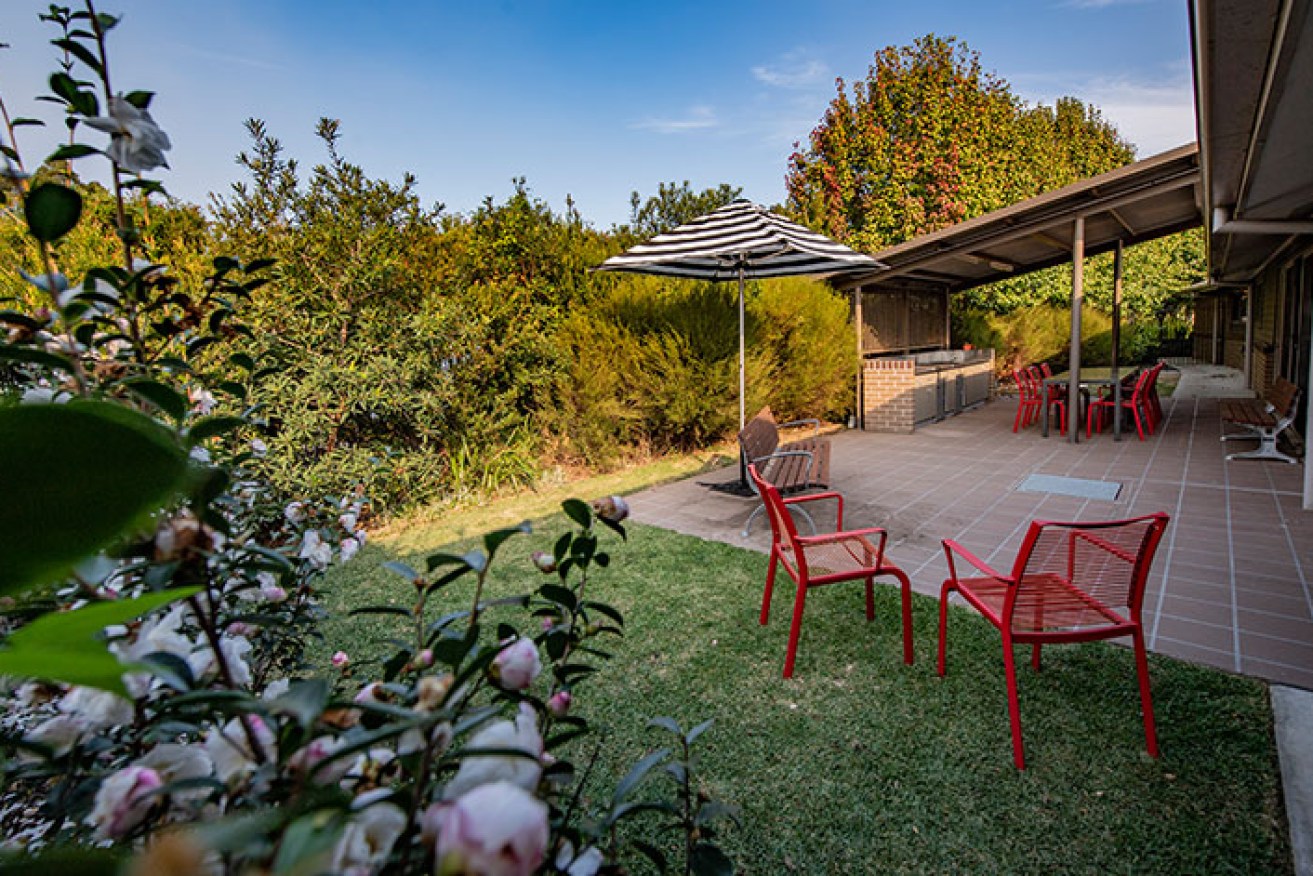Worker ‘absolutely mortified’ after virus cluster grows in aged-care home


The garden at Anglicare's Newmarch House in western Sydney. Several staff and residents have coronavirus. Photo: Anglicare
A western Sydney aged-care worker who worked six shifts with mild coronavirus symptoms is “absolutely mortified” at the cluster of cases that has spread to five other staff and four residents.
The woman reportedly had only a scratchy throat before testing positive for the virus.
NSW’s chief health officer Dr Kerry Chant said the staff member was distressed at the infections at Anglicare’s Newmarch House in Kingswood.
“This person is absolutely mortified,” she said.
“I would urge people to remember that the symptoms of COVID can be incredibly mild and the key point is do not go to work.”
Dr Chant said those who worked with elderly or vulnerable people should be aware of “even minor changes in your health”.
“It doesn’t matter how mild those symptoms are – runny nose, sore throat, just a scratchy throat in this case. Please don’t go to work,” she said.
“But I would like to reiterate that that worker is incredibly distraught.”
The aged-care facility cases were among 16 new coronavirus infections in NSW revealed on Wednesday morning. They took the state’s total to 2886.
Anglicare Sydney chief executive Grant Millard said on Wednesday the worker had shown no symptoms during her last shift at Newmarch House.
“Nothing was disclosed to us when she was last seen on April 6th, she did not display any symptoms,” Mr Millard told ABC TV.
The woman was seen by a residential manager at the time, he said.
“At that time they requested some time off work. We’re not sure why they did that,” Mr Millard said.
Anglicare has traced all workers from the facility, including anyone who’d had contact with those infected at the home.
Some 40 staff had been stood down to self-isolate at home, Mr Millard said.
Approximately 100 residents – with an average age of 85 – are isolating in their own rooms.
They are being tended to by staff wearing protective equipment.
“We brought in extra physios, extra staff in order to deal with this very challenging situation – it’s very, very tough,” Mr Millard said.
“People are rightfully upset. We’re very concerned, but the critical issue at this stage is to ensure that we have the testing results for everyone in the home who has been tested yesterday.”
Family members of some residents were also distressed, Mr Millard said.
Coronavirus is also crippling Tasmania’s north-west, where a 91-year-old woman became the state’s sixth person to die from COVID-19.
Two hospitals in Tasmania’s north-west have been closed for disinfection and cleaning to try to halt the worrying clusters centred there.
But it isn’t just Australia’s senior citizens who show great susceptibility to coronavirus infection.
In England and Wales, 2000 care homes have suffered outbreaks of COVID-19.
Northern Ireland resident Brenda Doherty’s mother, 82, died three weeks ago. She said the pain suffered by families was unspeakable.
“One of the hardest things was not being able to be with mum at the very end,” she told the ABC.
“But I know, I understand why that was. And I know it was about protecting the nursing staff and ourselves.”
In New Zealand, there have been six COVID-19 deaths at an aged-care facility in Christchurch. New Zealand’s total toll from the deadly virus was at nine on Wednesday morning.
The Rosewood Resthome and Hospital in Christchurch has a further 33 confirmed or probable coronavirus cases, including 18 among workers.

People at a restaurant in Stockholm on April 11 amid the coronavirus pandemic. Photo: Getty
In Sweden, where measures to slow the spread of coronavirus have been far more relaxed than in Australia, more and more nursing home residents are becoming infected or dying from the virus.
Sweden has hit the grim milestone of more than 1000 coronavirus deaths. Many are the result of the virus spreading in aged-care homes.
Anders Tegnell, an epidemiologist with the Swedish Public Health Agency, said one reason for the country’s comparatively high toll, despite its relatively small population of 10.3 million, was that the coronavirus had entered aged-care homes.
“It is obvious that they are an environment that is sensitive to the infection, and that means that when you get the infection into that age group you get many deaths,” he said.
Neighbouring Norway, which has introduced stricter coronavirus measures, including closing schools and kindergartens, has reported 138 COVID-19 deaths and about 6600 novel coronavirus cases.








